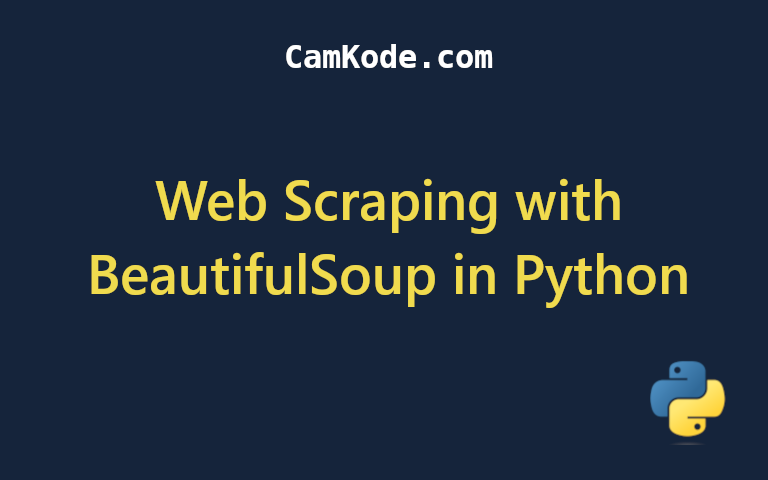Beginner's Guide to Web Scraping with BeautifulSoup in Python
Posted by Kosal

Web scraping is the process of extracting information from websites. Python offers several libraries for web scraping, with the most popular being BeautifulSoup. Here's a basic guide on how to perform web scraping using Python:
Step 1: Install BeautifulSoup
You can install BeautifulSoup using pip:
pip install beautifulsoup4
Step 2: Import necessary modules
from bs4 import BeautifulSoup
import requests
Step 3: Fetch the webpage
url = 'https://example.com'
response = requests.get(url)
Step 4: Parse the webpage
soup = BeautifulSoup(response.text, 'html.parser')
Step 5: Find elements and extract data
You can use various methods provided by BeautifulSoup to find and extract data from the parsed webpage. Here are some examples:
Example 1: Extracting all links (<a> tags)
# Find all <a> tags
links = soup.find_all('a')
# Extract text from the first <a> tag
first_link_text = links[0].text
# Extract the value of a specific attribute (e.g., href)
first_link_href = links[0]['href']
Example 2: Extracting specific elements by class or ID
# Find an element by class
element_by_class = soup.find('div', class_='example-class')
# Find an element by ID
element_by_id = soup.find('div', id='example-id')
Example 3: Extracting text
# Extract text from a specific element
element_text = element_by_class.text
# Extract text from multiple elements
elements_texts = [element.text for element in soup.find_all('p')]
Example 4: Extracting data using CSS selectors
# Extract text from all <p> tags within a <div> with class 'container'
p_tags_in_div = soup.select('.container p')
Step 6: Handling errors and exceptions
When performing web scraping, it's important to handle errors and exceptions gracefully. For example, if a requested URL is not accessible or if an element you're trying to extract does not exist, your code should handle such scenarios to prevent crashes.
Step 7: Putting it all together
Here's a simple example combining all the steps:
from bs4 import BeautifulSoup
import requests
# Fetch the webpage
url = 'https://example.com'
response = requests.get(url)
# Parse the webpage
soup = BeautifulSoup(response.text, 'html.parser')
# Extract all links
links = soup.find_all('a')
# Print the text of each link
for link in links:
print(link.text)
Discover the art of web scraping with Python's BeautifulSoup library! In this beginner-friendly guide, you'll learn the fundamentals of fetching webpages, parsing HTML content, and extracting valuable data effortlessly. Dive into the world of web scraping with confidence and explore the official documentation for BeautifulSoup https://www.crummy.com/software/BeautifulSoup/bs4/doc/. Start your journey towards mastering web scraping today!